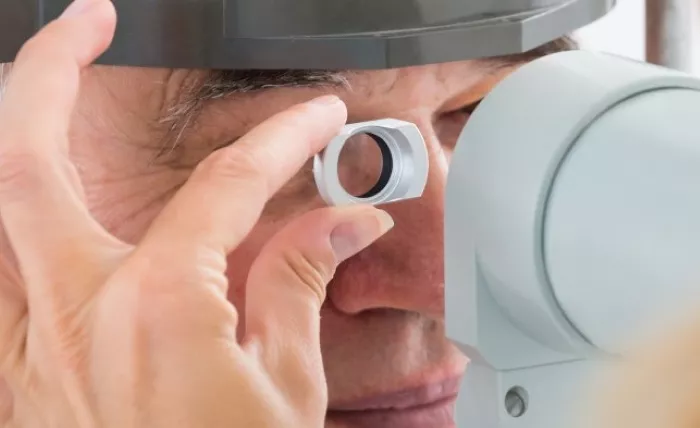Retinal vein occlusion (RVO) is a serious eye condition that occurs when a vein in the retina becomes blocked. This blockage can lead to vision problems, including blurry vision or even permanent vision loss. RVO is one of the most common causes of vision loss in adults.
What Is Retinal Vein Occlusion Surgery?
Retinal vein occlusion surgery is a procedure aimed at restoring blood flow to the retina and preventing further vision loss. The surgery is often recommended when other treatments, such as medications or laser therapy, have not been effective.
The goal of the surgery is to:
- Reduce swelling in the retina.
- Improve blood flow.
- Prevent complications like glaucoma or retinal detachment.
Types of RVO:
Central Retinal Vein Occlusion (CRVO): This occurs when the main retinal vein is blocked.
Branch Retinal Vein Occlusion (BRVO): This happens when a smaller branch of the retinal vein is blocked.
Understanding the condition is the first step toward finding the right treatment.
Who Needs Retinal Vein Occlusion Surgery?
Not everyone with RVO will need surgery. Surgery is typically recommended for patients who:
- Have severe vision loss.
- Experience persistent swelling in the retina.
- Are at risk of complications like retinal detachment.
Your eye doctor will evaluate your condition and recommend surgery if it’s the best option for you.
Types of Retinal Vein Occlusion Surgery
There are several types of surgeries available for RVO. The most common ones include:
1. Vitrectomy
A vitrectomy involves removing the vitreous gel from the eye to relieve pressure on the retina. This procedure is often combined with other treatments, such as laser therapy or injections.
2. Retinal Laser Surgery
Laser surgery is used to seal leaking blood vessels and reduce swelling in the retina. It’s a minimally invasive procedure that can be done in an outpatient setting.
3. Intravitreal Injections
While not a surgery in the traditional sense, intravitreal injections involve injecting medication directly into the eye to reduce swelling and improve blood flow.
4. Shunt Surgery
Shunt surgery involves creating a small channel to redirect fluid and reduce pressure in the eye. This procedure is less common but can be effective in certain cases.
What to Expect During Surgery
Retinal vein occlusion surgery is typically performed under local anesthesia. The procedure can take anywhere from 30 minutes to a few hours, depending on the complexity.
Here’s what you can expect:
Preparation: Your eye will be numbed, and you may be given a sedative to help you relax.
Procedure: The surgeon will use specialized tools to perform the surgery.
Recovery: You’ll need to rest for a few hours after the procedure and may need to wear an eye patch.
Recovery and Aftercare
Recovery from retinal vein occlusion surgery can take several weeks. During this time, it’s important to:
- Avoid strenuous activities.
- Use prescribed eye drops to prevent infection.
- Attend follow-up appointments with your eye doctor.
Most patients experience improved vision after surgery, but the results can vary depending on the severity of the condition.
Risks and Complications
Like any surgery, retinal vein occlusion surgery comes with risks. These may include:
- Infection.
- Bleeding in the eye.
- Increased eye pressure.
- Retinal detachment.
Your surgeon will discuss these risks with you before the procedure.
Alternatives to Surgery
Surgery is not always the first option for treating RVO. Some alternatives include:
Anti-VEGF Injections: These medications help reduce swelling and improve vision.
Steroid Injections: Steroids can also reduce inflammation in the retina.
Laser Therapy: This treatment can seal leaking blood vessels and prevent further damage.
Conclusion
Retinal vein occlusion surgery is a valuable treatment option for patients with severe RVO. By understanding the procedure, risks, and recovery process, you can make an informed decision about your eye health. If you’re experiencing vision problems, consult an eye specialist to explore your options.
Frequently Asked Questions
1. Is retinal vein occlusion surgery painful?
Most patients experience little to no pain during the procedure. You may feel some discomfort during recovery, but this can be managed with medication.
2. How long does it take to recover from surgery?
Recovery can take several weeks. Most patients can resume normal activities within a few days, but full recovery may take longer.
3. Will my vision improve after surgery?
Many patients experience improved vision after surgery, but the results depend on the severity of the condition and how quickly it was treated.
4. Can RVO come back after surgery?
While surgery can improve symptoms, it does not cure RVO. Regular follow-up appointments are essential to monitor your condition.
Related topics:
4 Private Retinal Detachment Surgeries
Cataract Removal Without Lens Implant: What You Need to Know
Reattach Retina: Everything You Need to Know

